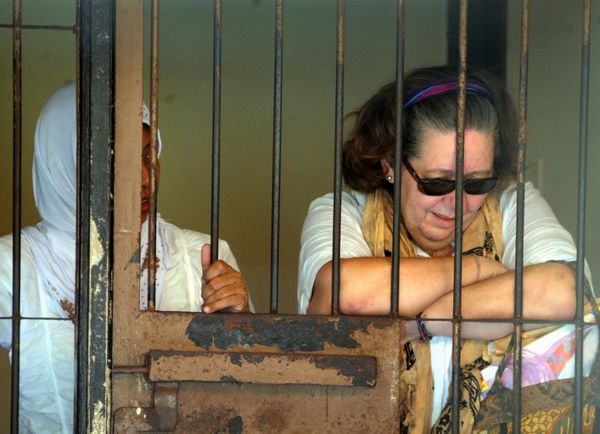
Francisco Pinto Balsemão, a former prime minister of Portugal in a turbulent post-coup period who withdrew from front-line politics and created a national media empire, has died. He was 88.
The website of the Portuguese president's office and the media group he created, Impresa, said he died late Tuesday but provided no cause of death.
Pinto Balsemão was a Cabinet minister when he was chosen in 1981 by his governing Social Democratic Party to replace its prime minister, Francisco Sá Carneiro, who had been killed in a plane crash in Lisbon.
The crash occurred in murky circumstances during political turmoil still rippling from a 1974 army coup that had ended Portugal’s four-decade dictatorship.
Pinto Balsemão was a co-founder of the Social Democratic Party and was one of its leading lawmakers. The Social Democrats governed in a coalition, known as the Democratic Alliance, with other center-right parties.
Pinto Balsemão accepted the post of prime minister, heading Portugal’s eighth government in five years. He later described taking the job as “the hardest thing I’ve ever done.”
Amid sharp criticism within his own party over his leadership, tensions in the governing coalition, and with opposition parties repeatedly attacking him as an unelected leader, Pinto Balsemão resigned in mid-1983.
His legacy as a reforming prime minister included a 1982 revision of the constitution, seeking to shed some of the left-wing ideological features enshrined in the 1976 version and free the economy from centralized government. The revision scrapped a ban on re-privatizing companies nationalized in the wake of the so-called Carnation Revolution of 1974.
Pinto Balsemão also negotiated terms with the European Economic Community, now called the European Union, for Portugal’s entry to the bloc in 1986.
After leaving the government he mostly dedicated himself to building up the weekly paper Expresso, which he had founded in 1972 and which is still one of the country’s most respected newspapers.
“Portugal has lost ... one of its most important figures of the past 60 years,” Portuguese President Marcelo Rebelo de Sousa said in a statement.
Born Sept. 1, 1937, Pinto Balsemão graduated in law from Lisbon University and completed his mandatory two-year military service, during which he edited the Portuguese Air Force magazine.
He became an attorney and also worked part-time on daily paper Diário Popular, in which he had a 16% share that he had inherited from his father.
After Diário Popular was sold, Pinto Balsemão invested his proceeds in creating Expresso, which was modeled on British weekly newspapers. Despite the dictatorship’s censors, Expresso’s investigative journalism and liberal views contributed to the downfall of the dictatorial regime.
While Antonio Salazar’s dictatorship was still in place, Pinto Balsemão entered the National Assembly — a toothless body with no governing powers that the government used to varnish its reputation abroad — as an independent in 1969. He was part of a famous liberal section of members who were pushing for Portugal to adopt a democratic system of government.
After the Carnation Revolution introduced democracy, he took a seat in the Constituent Assembly, which was charged with writing the new constitution, and joined parliament in 1979.
As prime minister, he paid an official visit to the United States in December 1982, meeting with President Ronald Reagan in the White House. At that time, Western Europe and the U.S. still had a wary eye on Portugal, which after the coup had committed its future to NATO and the EEC but where more radical figures who wanted an alliance with the Soviet Union still had a mainstream voice.
Expresso became the foundation for Pinto Balsemão’s media group, Impresa, which at one point included more than 30 newspapers and magazines, television and online channels, and other publishing and printing interests.
In 1992 he launched the country’s first private television channel, S.I.C., which quickly became the leading channel.
He told his biographer, Joaquim Vieria: “Of everything I have done in life, the constant theme running through it and the main aim has been ... the fight for freedom of expression in general and, specifically, the right to inform and to be informed.”
Pinto Balsemão served as chairman of the European Publishers’ Council and headed the European Institute for the Media. He also held senior posts in other European media groups.
He is survived by his second wife, Mercedes, five children and various grandchildren.
Ukraine war live: Trump claim he didn’t want a ‘waste of time’ Putin meeting
Driver arrested after vehicle slams into White House security gate
Asian shares slip on selling of tech stocks after a lackluster day on Wall Street
A massive drone and missile attack on Ukraine’s capital kills at least 2, Ukrainian officials say
Backlash as Greek government seeks to ban protests at iconic monument
Ukraine hits Russian chemical with British Storm Shadow missiles in ‘massive’ attack







